Welcome!
We are the Materials and Interface Nanotechnology Laboratory at the University of Maryland. The group is led by Prof. Oded Rabin (Department of Materials Science and Engineering and the Institute for Research in Electronics and Applied Physics).
Our mission is to understand and exploit interactions between inorganic nanoscale objects and their chemical and physical environment. Our efforts involve chemical synthesis, material characterization, and the fabrication of proof-of-principle devices.
We study new physics emerging in materials at the nanoscale and identify the significance of this science in applied areas, such as sensing, energy, and biomedical research.

Explore Our Work
Research
Learn about our research themes and current projects.
People
Connect with the members of our laboratory and its alumni.
Publications
A comprehensive list of published scientific articles co-authored by Prof. Rabin.
Facilities
A look at the tools and facilities that support our experimental research.
Gallery
A collection of professional images related to our lab activities.
Links
Find resources and links relevant to our work.
News & Announcements
2025
- Graduation
Kenneth McAfee (Ph.D. 2025) completes his graduate studies and his thesis Heat Flux Sensors and Reconstruction Techniques for Atmospheric Entry Spacecraft. Congratulations!
- Heat Flux Sensing at 1000 °C? We've got it covered.
Our work on single crystal rhenium as a transducer for heat flux sensing appears in Sensors and Actuators Reports. Graduate student and first author Kenneth McAfee constructed specialized high-temperature facilities for the calibration of the sensor. The sensor can continuously monitor the incident heat flux and maintain operation even after exposure to 1000 °C.
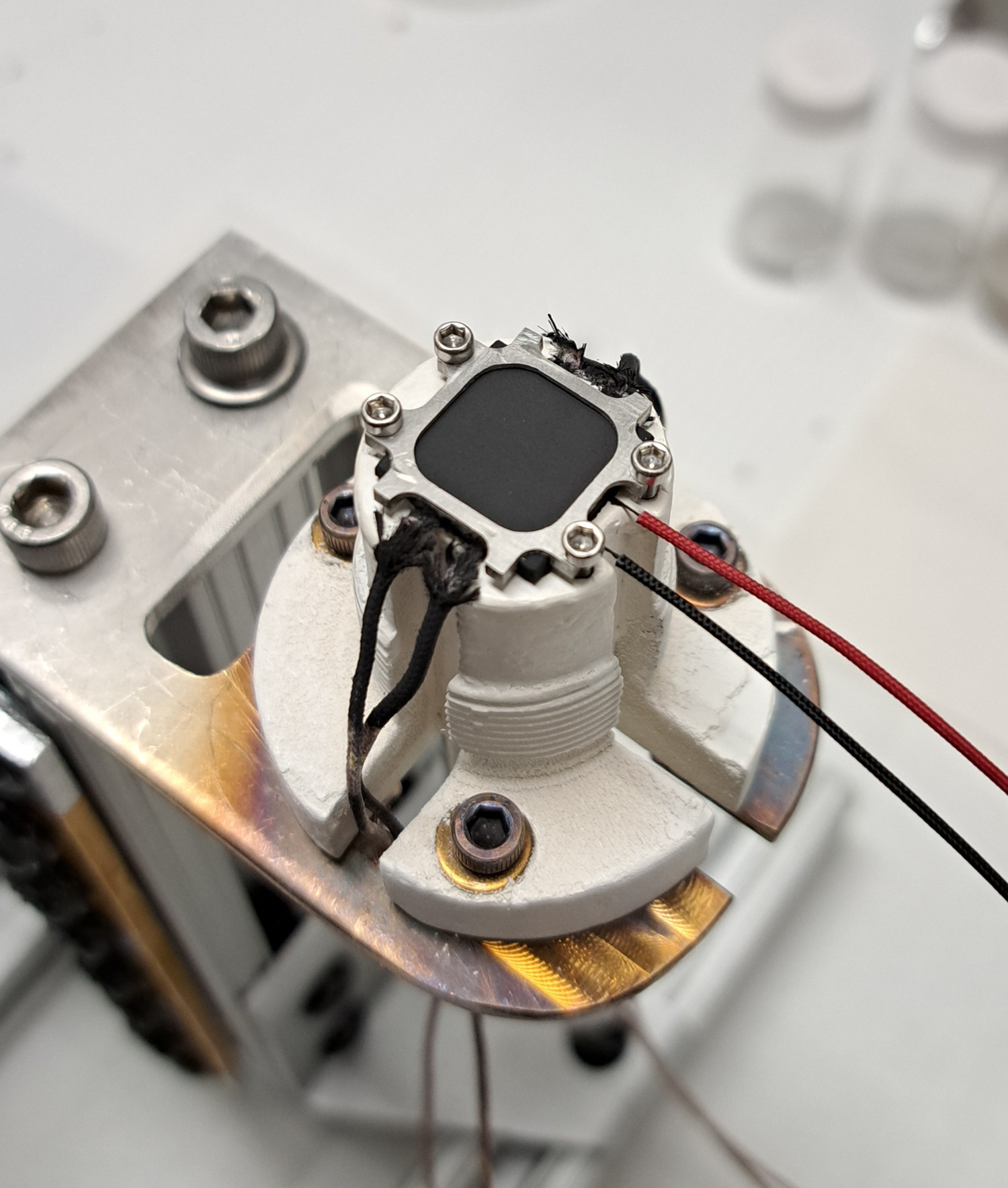
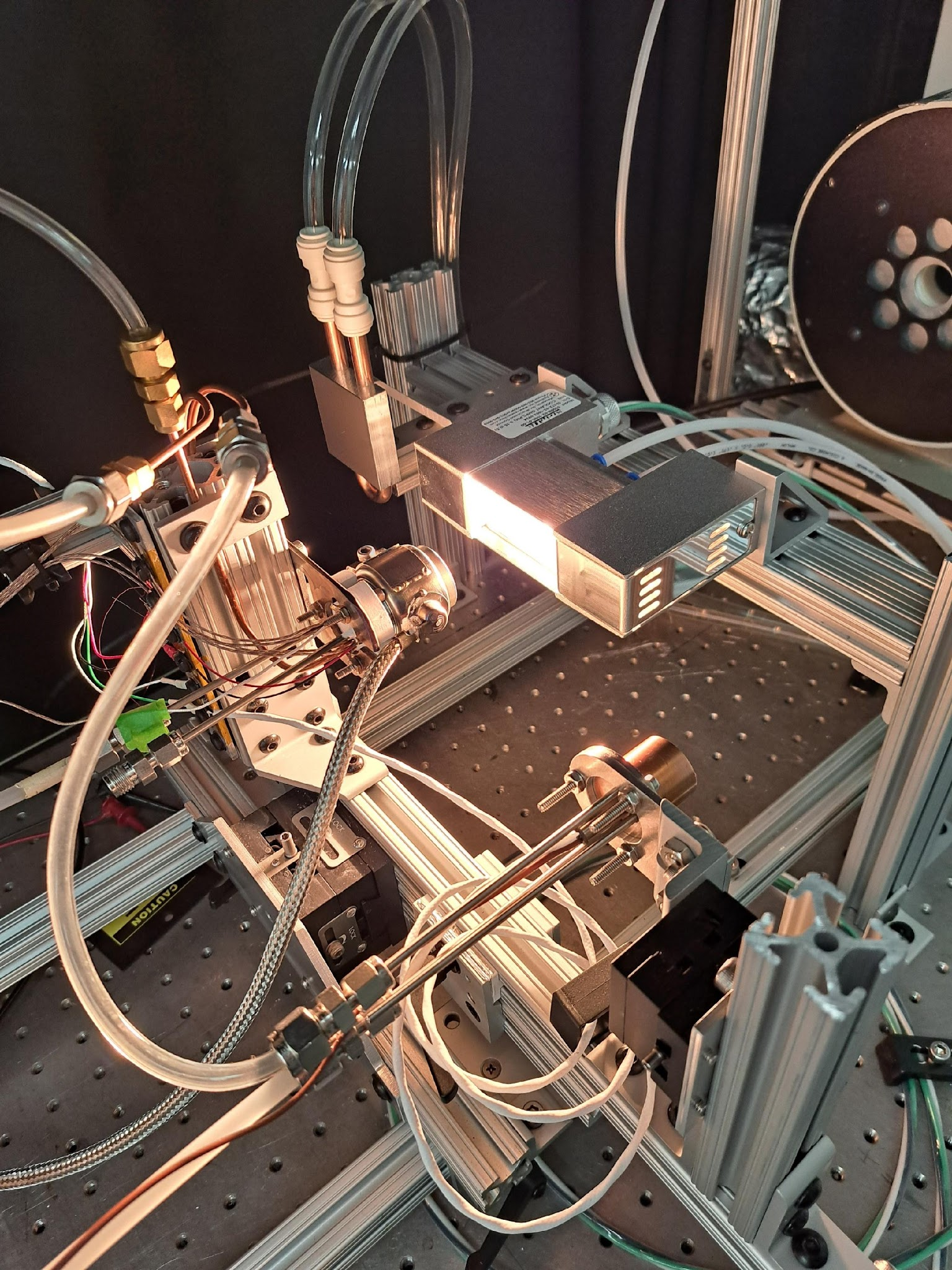
- Understanding Heat Where It Matters Most
Clark school websites feature our Thermoelectrics research. The project, funded by the U.S. Department of Energy, resulted in robust heat flux sensors for applications in power plants; but other industries and uses are possible. What makes the team's sensor especially promising isn't just its resilience, but its simplicity!
- Departmental Seminar
Prof. Rabin presented work on heat flux sensing technology in a departmental seminar titled "Transverse Thermoelectrics - From Cold-War Era Curiosity to Modern Applications and a Winning Student Project" (10/17/2025). The seminar coincided with the publication of a journal article in Sensors and Actuators Reports. Recording will be made available soon.
- International Planetary Probe Workshop
Kenneth McAfee presents his work "A Green's Function Sensor Fusion Approach for Reconstructing the Heat Loads on Atmospheric Entry Spacecraft" at the International Planetary Probe Workshop in Stuttgart, Germany.
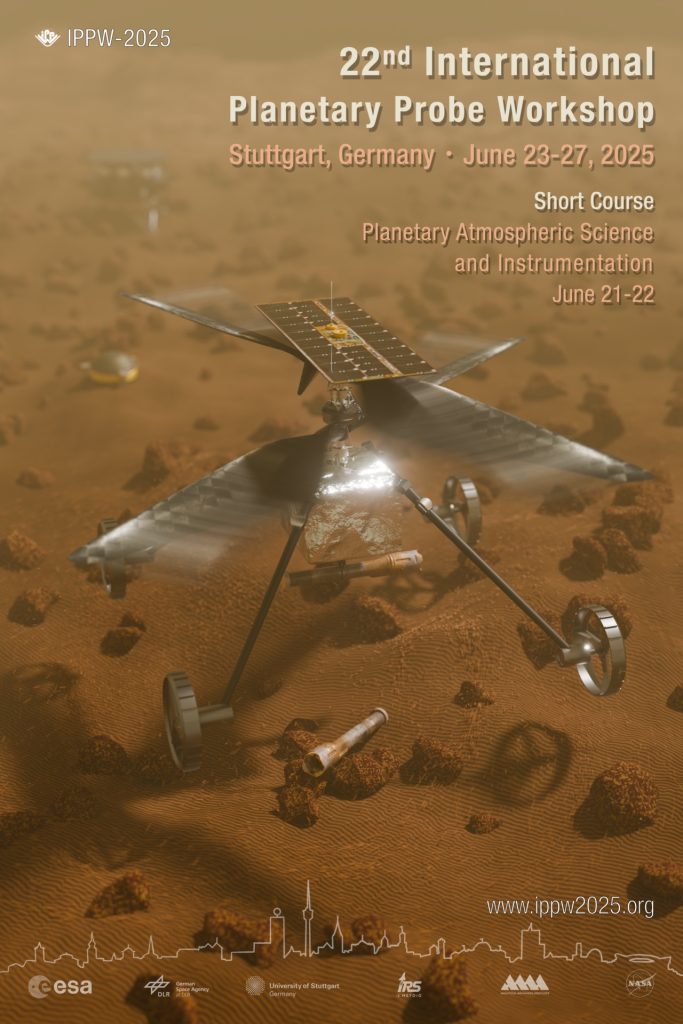
- Bilateral Project Czech Republic — United States of America: RESEARCH, DEVELOPMENT AND INNOVATION
Our laboratory begins a collaboration with Prof. Martin Kalbac's group (Prague), with a 4-year support from the Ministry of Education, Youth and Sports of the Czech Republic (LUAUS'25: ARTIFICIAL 2D ASSEMBLIES FOR APPLICATIONS IN ADVANCED THERMOELECTRIC DEVICES).
- Zhihao Song, B.A. (2019, University of Electronic Science and Technology of China) joins MINT Lab. Zhihao's research is in the area of thermoelectric transport (DOE/NETL funding).
- Radiance Technologies Innovation Bowl
Our student team, the Transverse Terrapins of the University of Maryland, won the first place in the 2024-2025 Innovation Bowl college competition sponsored by Radiance Technologies and its Independence Bowl Foundation. The grand prize of $25,000 was awarded to the team that presented the best idea for a parasitic energy scavenging device. On April 3, Kenny, Ryan and Keegan went to Hunstsville, AL, to pitch their technology to a panel of technical experts. The team built a heat exchanger pipe out of alternating segments of nickel alloys, and demonstrated that electrical power can be extracted as hot and cold water flow around and in the pipe, respectively. Therefore, as the heat exchanger performs its duty to maintain equipment cool, its pipes passively recover a fraction of the energy embedded in the excess heat, instead of discarding all of it into the environment.
More on the announcement here and here.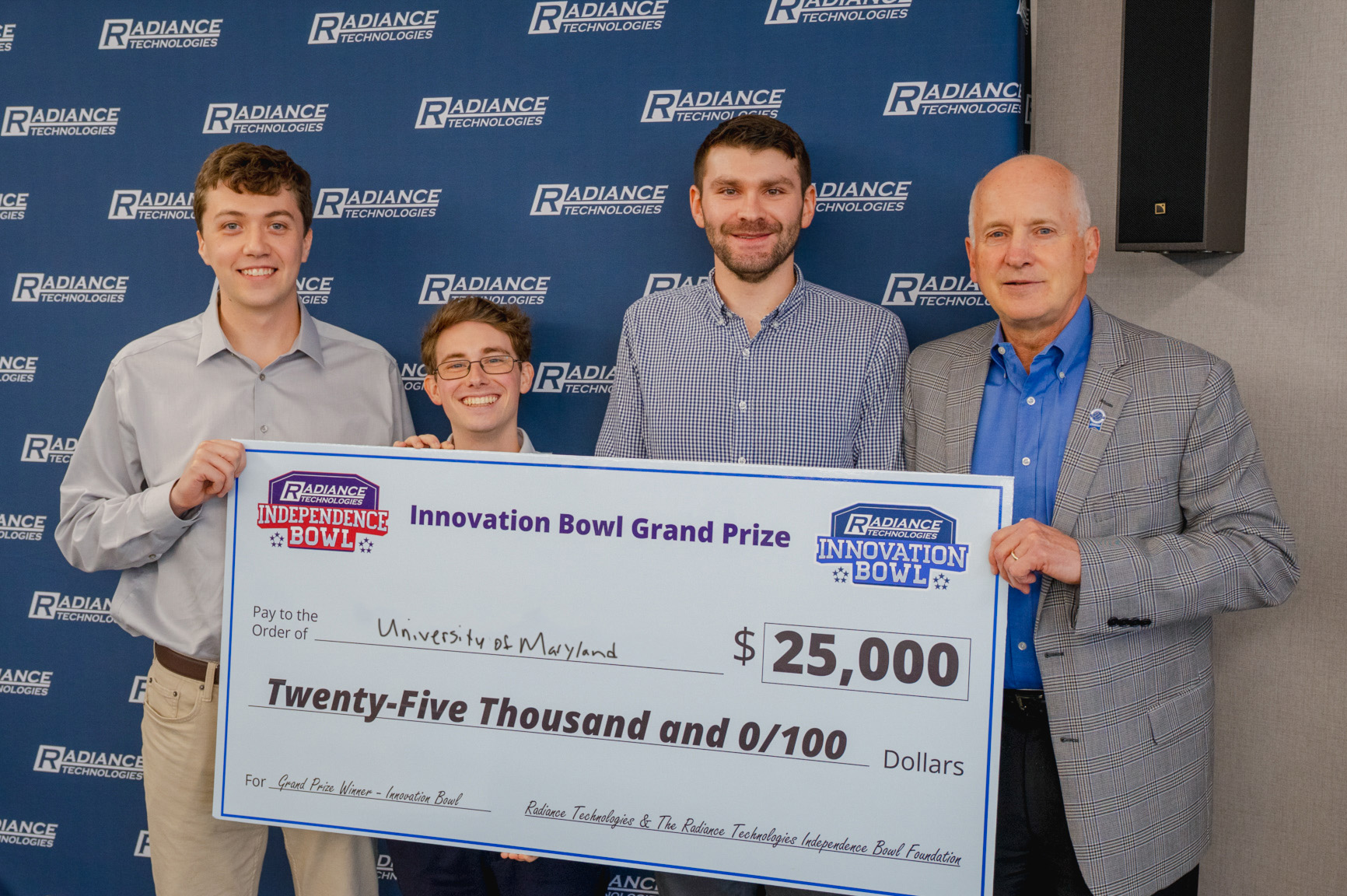
Transverse Terrapins Student Team with Dr. Pete Weiland, CTO Radiance Technologies, Inc.
- Yes, it was us on ESPN!!
Our student team, the Transverse Terrapins of the University of Maryland, was named one of three finalists in the 2024-2025 Innovation Bowl college competition sponsored by Radiance Technologies and its Independence Bowl Foundation. The announcement was broadcast on prime-time TV during the Independence Bowl (Army vs. LA Tech, 12/28/2024).
2024
- Invited talk at KIT
Prof. Rabin visited the laboratory of Prof. Ulrich Lemmer at the Light Technology Institute, Karlsruhe Institute of Technology (Karlsruhe, Germany). He gave an invited talk on various projects completed at UMD, including SHG with plasmonic nanoarcs and heat flux sensor development for extreme environments.
- International Workshop "Transverse Effects in Thermoelectric Systems"
The Wilhelm and Else Heraeus workshop "Transverse Effects in Thermoelectric Systems" co-organized by Prof. Rabin, Prof. Nielsch (IFW-Dresden) and Prof. Fischer (Humboldt University-Berlin) took place Oct 13-16 at the Physikzentrum in Bad Honnef, Germany. The majestic villa hosted 60 scientists for 3 days of invited talks, contributed talks and a poster session.


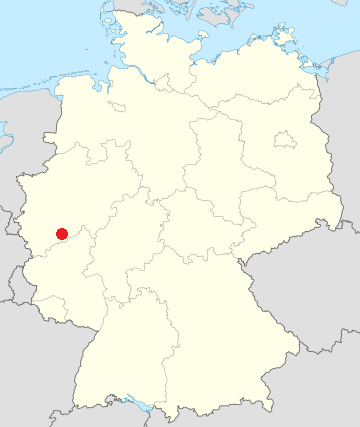
- Observation of Large Seebeck-driven Transverse Thermoelectric Generation in Bi/Sb Bulk Composites by Jangwoo Ha (Pohang University of Science and Technology)
- Band-resolved Transport Properties and the Transverse Thermoelectric Conversion in a Semimetal WSi2 by Shoya Ohsumi (Tokyo University of Science)
- Robustness Through Simplicity: Leveraging the Transverse Seebeck Effect for Extreme Environment Heat Flux Sensing by Kenneth McAfee (University of Maryland)
Kenneth McAfee collaborates with our NASA partners in California and attends the AIAA conference in Las Vegas, NV. His talk "A Green's Function Sensor Fusion Approach for Evaluating Spacecraft Entry Heating from On-Board Thermal Instrumentation" and accompanying paper describe his contributions to accurate measurement of heat flux during spacecraft reentry.
Looking forward to seeing you at the 40th annual International Conference on Thermoelectrics in Krakow, Poland. The talk "Characterization of Heat Flux Sensors in Hot Environments: Pushing the Envelope of Operational Temperature with Transverse Seebeck Effect Devices" will share our research work on transverse thermoelectricity.

|
Our work Transverse Seebeck Effect Devices for Heat Flux Sensing in Hot Environments up to 500C (McAfee, Sunderland, Rabin) attracted attention at the MRS'24 Spring Conference in Seattle, WA, and received the Best Poster Award for the Thermoelectrics Symposium. We thank the organizers for a great scientific event and the award sponsor, the Royal Society of Chemistry - Journal of Materials Chemistry A. We continue working on pushing the limit further to reach 600C!

|

|
Graduate student Kenny McAfee is elected to join the Clark Doctoral Fellows, a college-wide program to recognize high-achieving doctoral students.
2023
- Upcoming International Workshop in Bonn, Germany
The Wilhelm and Else Heraeus foundation confirmed support for the workshop "Transverse Effects in Thermoelectric Systems" co-organized by Prof. Rabin, Prof. Nielsch (IFW-Dresden) and Prof. Fischer (Humboldt University-Berlin).

- Kenny McAfee advances to candidacy at the Aerospace Engineering Ph.D. program.
- A New Material and Design Considerations for Heat Flux Sensors
Our work on single crystal antimony as a transducer for heat flux sensing appears in Sensors and Actuators A:Physical. The paper is the first to come out from our new high-temperature testing facilities. Graduate student and first author Kenneth McAfee constructed, characterized and modelled the sensor.
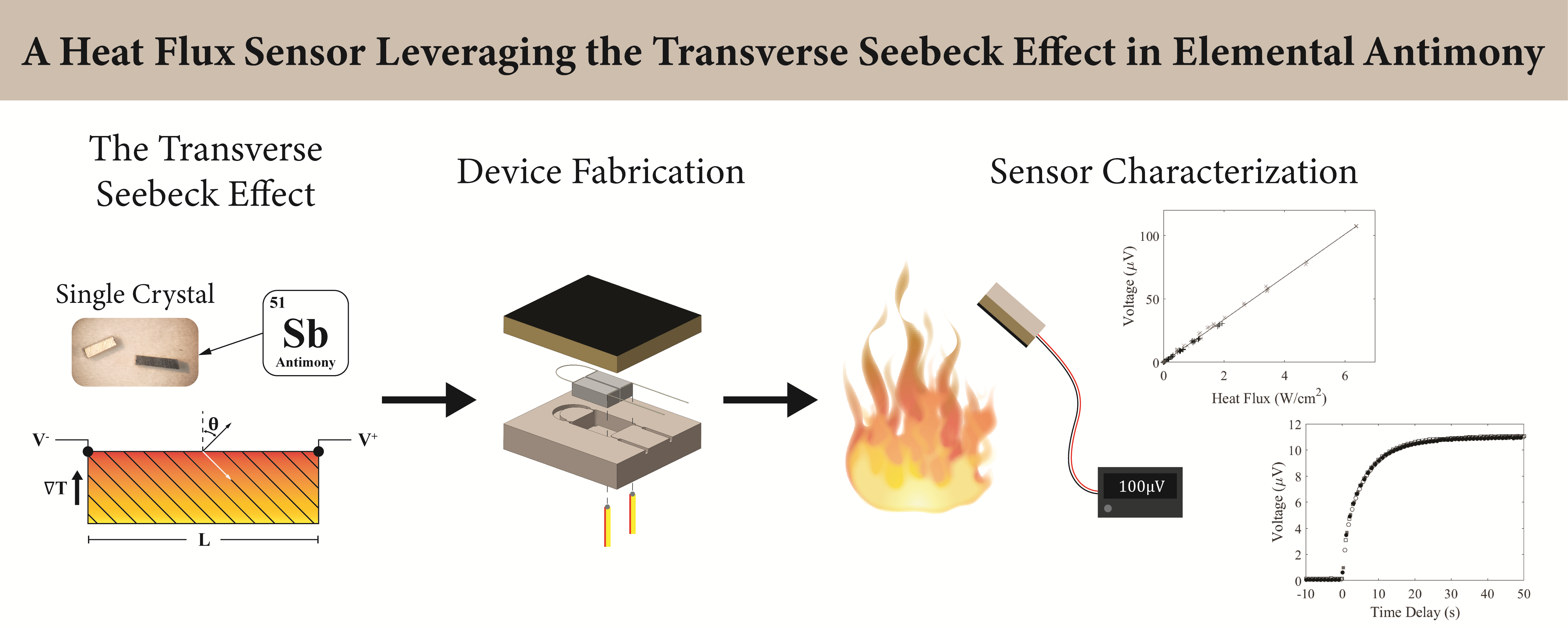
- NASA Student Award
Kenneth McAfee won 1st place in the Student Poster Competition of the 34th NASA Thermal Fluids and Analysis Workshop. Title: Leveraging the Transverse Seebeck Effect for Robust Heat Flux Sensors. Kenny will present his research more extensively in the Dec'23 JANNAF meeting and the 2024 AIAA SciTech Forum.


- ICT conference
Dr. Rabin and graduate student McAfee present at the 39th annual International Conference on Thermoelectrics in Seattle, WA. The talks "Analysis of the transverse thermoelectric performance characteristics of artificially layered anisotropic materials" and "Design and Characterization of a Single Crystal Antimony Heat Flux Sensor Utilizing the Transverse Seebeck Effect" introduced the audience to our work on transverse thermoelectricity.


- NASA Fellowship Award
Kenneth McAfee was awarded the NASA Science and Technology Graduate Research Opportunity fellowship (NSTGRO23) to conduct research on heat flux measurements and modeling during atmospheric reentry. This proposal is a spin off on his achievements in constructing and calibrating heat flux sensors based on the transverse Seebeck effect.

- Alum Visit
We extend a warm welcome (back) to Prof. Seung Yong Lee (PhD, 2012) from KIST. He will spend his sabbatical year at the University of Maryland.
- An International Experience
Ph.D. candidate Kenneth McAfee was invited to visit the Leibniz Institute IFW-Dresden, present his work, collaborate with the institute's staff and attend the German Physical Society meeting.

2022
- Fulbright Award
Prof. Rabin was selected for the 2022-2023 cohort of U.S. Fulbright Scholars by the German-American Fulbright Commission. Dr. Rabin will spend the academic year at the Leibniz Institute for Solid State and Materials Research in Dresden, Germany, in the Institute for Metallic Materials led by Prof. Dr. Kornelius Nielsch.
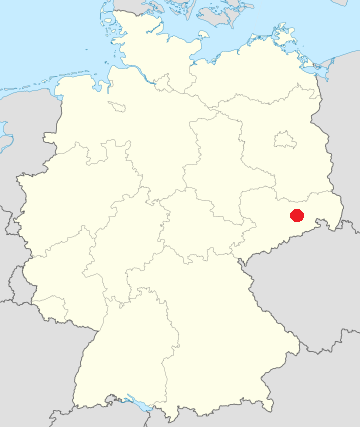
2021
- Prof. Rabin becomes Affiliate Associate Professor in the Department of Aerospace Engineering at the University of Maryland.
- Gold Nanoparticle Arrays on the Tip of a Fiber
Xin and Kunyi publish their work on remote SERS using an optical fiber functionalized with a plasmonic metamaterial. The paper in Frontiers in Physics demonstrates the sensitivity achieved by the device in detection of thiol molecules. In collaboration with Accustrata Inc., and with a grant from UM Ventures, we investigated the self-assembly of nanoparticles on the tip of an optical fiber (100 or 200 microns in diameter) and the potential application of our plasmonics research towards remote chemical sensing.
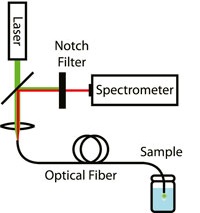
- Dr. Mandal accepts research scientist position at UMD.
- Kenneth McAfee, M.Sc. (2020, Binghamton University) joins MINT Lab. Mr. McAfee's research in thermoelectric sensors is funded by DOE/NETL.
2020
- Plasmon Resonances in Curved Nanorods
Kunyi and Andrew publish their extensive work on Localized Surface Plasmons in Metallic Nanoarcs. The paper in Optics Express provides a blueprint for designing nano-objects that act as selective nano-antennas at specific optical frequencies. The students worked with collaborators in the Berkeley lab, the Naval Research Laboratory and in IREAP, learning new skills and expanding the scope of this NSF-funded project.
- High-Temperature Heat Flux Sensing
Prof. Rabin and Prof. Peter Sunderland (FPE) receive a NETL University Training and Research award (DOE) to support developing heat-flux sensor technologies compatible with the high-temperature corrosive environments found in power plant boilers and training a next generation of highly-skilled engineers for the energy economy.
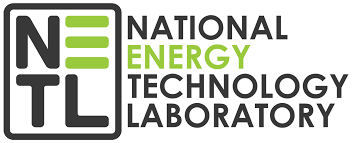
- Graduation
Kunyi Zhang (Ph.D. 2020) completes her graduate studies and her thesis Tailoring Localized Surface Plasmon Resonances in Metallic Nanoantennas. Dr. Zhang will continue researching optical properties of nanostructures at UMD.
- Pampa R. Mandal Sarkar, Ph.D. (2015, Indian Institute of Technology - Kharagpur) joins MINT Lab. Dr. Mandal's research in thermoelectric sensor films is funded by AFOSR.
2019
- Ultra-fast Heat Flux Sensing
MINT Lab joins Prof. Stuart Laurence (AE) and Innoveering LLC in developing surface heat-flux and temperature sensors for hypersonic vehicles. The research is supported by AFOSR through a phase II STTR award.

- Student Award
Kunyi Zhang receives the Ann G. Wylie Dissertation Fellowship for her work on plasmonic nanostructures.
- New Strategies to Nonlinear Optics Materials
Prof. Rabin and Prof. Tom Murphy (ECE, IREAP) are awarded the New Directions grant for research in non-linear optics of plasmonic nanostructures.
2018
- MetaMaterials'2018
Rabin presents at the 12th International Congress on Artificial Materials for Novel Wave Phenomena the work on "Metallic Nanoarc Antennas – Plasmonics Building Blocks for Non-Linear Optical Metamaterials" in Espoo, Helsinki, Finland.
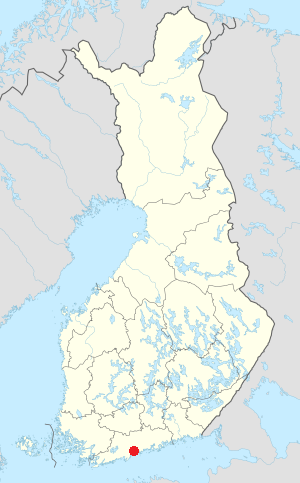
- Advanced Manufacturing
A consortium led by faculty of the Department of Materials Science and Engineering is awarded a DOE grant to advance our understanding of Covetic materials formation and develop effective manufacturing processes for the large-scale production of these nanocarbon metal composites.
- Prof. Rabin is awarded a second-term Summer Faculty Fellowship to collaborate with Dr. Augustine Urbas of the AFRL. At AFRL, the team demonstrates high Second Harmonic Generation from the metamaterials designed at UMD.
- Kunyi Zhang presented her research on Plasmonic Nanoarcs in the March Meeting of the American Physical Society (APS) 2018 in Los Angeles.
- Master students Haoxian Zhang, B.S. (2017, University of California, Davis) and Sooh-Hwan Nathaniel Jang, M.S. (2017, University of Maryland) join MINT Lab for short-term research assistantships.
Haoxian researched the transverse Seebeck effect in metal films. Nate researched the covetics process in high-vacuum environment.